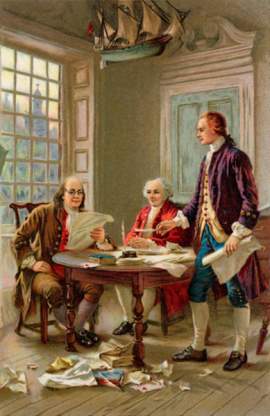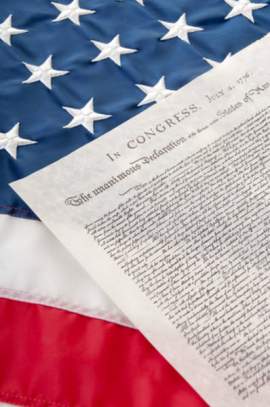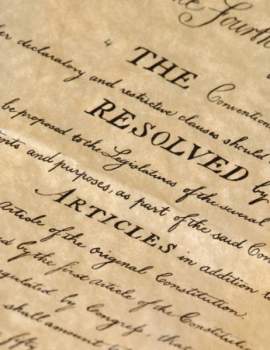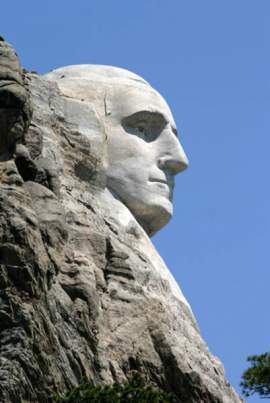
The Short Biography Of Thomas Jefferson
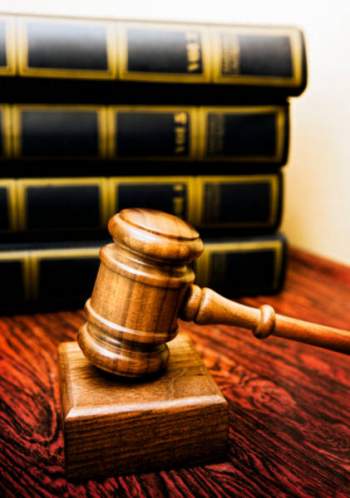
Popular In Constitution
Purpose Of Lifetime Appointment And Pros And Cons Enumerated Powers Bicameral Legislature Background Article 3 Of The Constitution We The People 1st Amendment Who Wrote The Constitution Judicial Review Equal Protection Clause 5th Amendment 10th Amendment Three Fifths Compromise
Thomas Jefferson, widely considered one of the most respected and influential of the Founding Fathers, served as both President of the United States and principle author to the Declaration of Independence. Jefferson constantly promoted his ideas of liberty and Republicanism in the attempt to thwart British imperialism and provide a new democracy for the American people.
Dissimilar to many colonial politicians or Founding Fathers, Jefferson was considered a worldly politician. He was a man of the Enlightenment and routinely made trips overseas to interact with foreign intellects. The prominent Founding Father believed in the separation of church and state, and a balancing of powers between federal and local governments. Jeffersonian Democracy often showed discontent for authoritative governments, for it distrusted large empires, cities, and financiers.
In his first published work, A Summary View of the rights of
British America, Jefferson
outlined the injustices of the British Parliament and cited numerous violations
against natural laws. Many of the Founding Fathers authored publications that
denounced unjust British taxation as a violation against Constitutional or
tangible laws. Jefferson, however, attacked the levies as an inequity against
human rights.
Jefferson radically believed that colonists possessed "natural" rights to govern themselves and the reach of the British rule did not extend to infiltrate the colonial way of life. Like the other anti-British publications, A Summary View of the Rights of British America did concretely expose the legality issues involved in taxation of colonies that were not overseen by the Parliament. However, Jefferson's overwhelming thesis revolved around the basic rights of the individual and the necessity of separated life from government.
The
publication, represented by the Virginia Delegation, was originally intended to
be delivered at the first Continental Congress. However, Jefferson's ideas were
simply viewed as too radical. Although the pamphlet failed to reach State
leaders in the Congress, it still served as a critical rallying cry used to
spark the Revolution.
Shortly following the outbreak of the
Revolutionary War, Thomas Jefferson served as a delegate to the Second
Continental Congress in June of 1775. Although the war already commenced,
Congress felt the necessity to fully establish independence with the
drafting of an official document. As a result of his influence and literary skills,
Jefferson was appointed to a five man committee responsible for authoring the
Declaration of Independence.
Using the
Virginia Constitution as his framework, Jefferson was given chief
responsibility to author the historical document. Even though a quarter of the
original text was deleted, the Declaration of Independence was approved on July
4th, 1776, and served as Jefferson's most notable and stunning achievement. The
Preamble of the Declaration is still considered one of the most revolutionary
and thought-provoking literary passages on human rights.
Thomas Jefferson returned to Virginia and served
as governor and delegate through 1784. While in office, Jefferson set out to
reform Virginia's system of laws to better reflect the State’s new status as a
democratic jurisdiction. Along with transforming the education system,
Jefferson established freedom of religion and organized the judicial system for
streamlining purposes. Jefferson also eliminated capital punishment for all
crimes other than murder and treason.
Following his work in Virginia, Jefferson served as a minister to France from 1785-1789. Although his abroad status disabled Jefferson from attending the Philadelphia Convention, he was informed of the specifics and events that led up to the drafting of the American Constitution.
The author of the Declaration of Independence was commonly distraught over the lack of individual freedoms within the document, but generally supported the principles and ideology of the Constitution. Jefferson's absence in the drafting of the Constitution was severely missed. However, his words and teachings perpetually loomed over the Founding Fathers in attendance. When Jefferson was elected President in 1801 his impact grew larger as he purchased the Louisiana Territory, repealed numerous Federal taxes, barred slavery importation, and further progressed individual rights and thought.
NEXT: Thomas Paine





